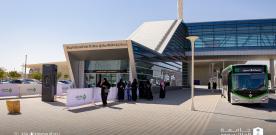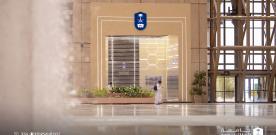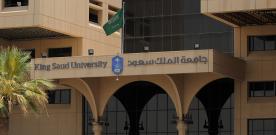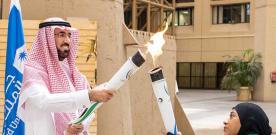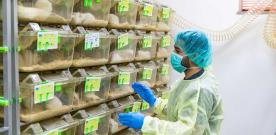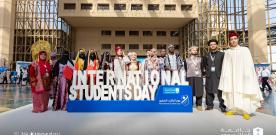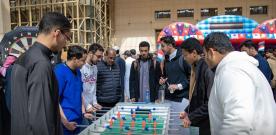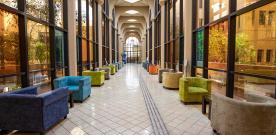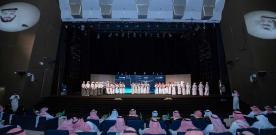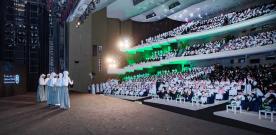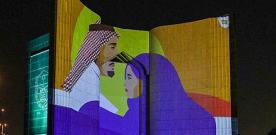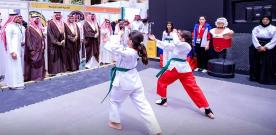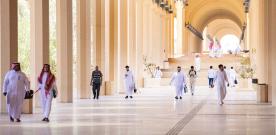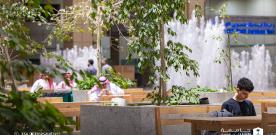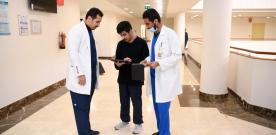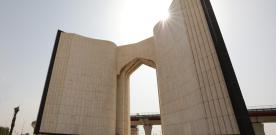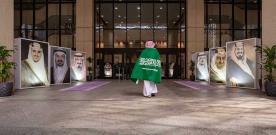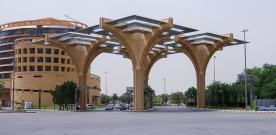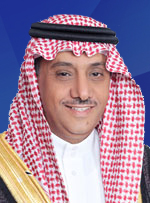About University
Detailed information about King Saud University
Vision
To be a world class university and a leader in building the knowledge society.
Values
Based on our Islamic and cultural values, we uphold:
Quality and excellence: We measure ourselves according to challenging criteria, honoring high ambitions and the pursuit of distinctiveness through our commitment to the highest intellectual standards in teaching, learning, and innovation.
Leadership and teamwork: We remain committed to promoting individual and institutional leadership roles that drive social development upholding professionalism, responsibility, and innovation.
Freedom of inquiry: Rigorous and honest intellectual exploration is fundamental to our academic traditions, and it is reflected in all the dimensions of our scholarly activities.
Fairness and integrity: We abide by the principles of social justice, equal opportunity, and cultural diversity, consequently holding the members of our community to the highest standards of honesty, respect, and professional ethics.
Transparency and accountability: We remain committed to exposing our thinking and ideas for society and scholars to judge our contributions to global knowledge, and we hold accountable everybody in our community for respecting and upholding our values in all forms of their scholarly activities.
Lifelong learning: We are committed to lifelong learning inside and outside the KSU community, enhancing continued intellectual growth and the welfare of society.
Strategic Objectives
Strategic Objective #1 – Good everywhere; Great in focus areas.
Strengthen our comprehensive university with academic areas of research and teaching excellence.
Strategic Objective #2 – Distinctive faculty.
Attract and develop distinctive faculty.
Strategic Objective #3 – Less is more.
Reduce KSU’s student volume, increase the share of graduate students and raise entry requirements.
Strategic Objective #4 – Stronger graduates.
Enable KSU students to learn hard and soft skills throughout their academic life.
Strategic Objective #5 – Building bridges.
Build bridges among KSU constituencies and externally with local and international groups.
Strategic Objective #6 – Supportive learning environment.
Create an engaging environment at KSU for faculty, students, and staff.
Strategic Objective #7 – Sustainable future.
Build KSU’s endowment and diversity sources of funding.
Strategic Objective #8 – Flexibility and Accountability.
Create a performance contract between KSU and the government.
Strategic Objective #9 – Organizing for purpose.
Establishing an organization and governance that supports KSU’s goals.
History
Establishing Saudi Arabia’s first university was a response to the educational and professional needs of a young nation. Abdulaziz Al-Saud, proclaimed the King in 1932, and began laying the foundations for modernizing his country and establishing an educational system. In 1953, Saud, the eldest son of Abdulaziz, acceded to the throne upon his father's death. He would soon institute the Council of Ministers and establish the Ministry Education.
Prince Fahd, who would eventually become the Saudi King himself, assumed the office of the first Ministry of Education, and following the first session of the Council of Ministers, he announce, “We will shortly establish the first Saudi University, this is a foregone conclusion. This university will be one of the most prominent houses of culture and sciences and will be worthy of our country where the light of Islamic faith and civilization has emanated”.
Prince Fahd was committed to promoting higher education, and once said, “I am interested, before anything else, in supporting higher and vocational education in this country in order to add a new and illustrious chapter to our glorious history. Establishing a Saudi university with all its colleges, institutes and laboratories, built according to the highest of standards, is my immediate concern”.
In 1957, according to the dictates of the Royal Decree No. 17, Prince Fahd announced the founding of King Saud University, established in order to, “Disseminate and promote knowledge in Our Kingdom for widening the base of scientific and literary study, and for keeping abreast with other nations in the arts and sciences and for contributing with them discovery and invention”, in addition to reviving Islamic civilization and articulate its benefits and glories, along with its ambitions to nurture the young virtuously and to guarantee their healthy minds and ethics”. we have decreed the following:
Article 1:
Establishing a university in our kingdom called (King Saud University).
Article 2:
The Minister of Education in our government shall be the head president of the university. He approves the decisions of the University Council and appoints the deans of the colleges.
Article 3:
The faculties in this university are established successively according to the need and preparation.
Article 4:
After establishing two colleges of university colleges, create a university system, which shows links between colleges and the administration of the university and between the colleges themselves.
Article 5:
The Prime Minister and the Minister of Education must implement this and peace.
The Royal Signature of Saud.
Two other royal decrees were issued together with the Royal Decree, one with No. 18 in 1957, the other with No. 19 in 1957, the first with the establishment of a college of
Arts, and the second with the establishment of a college of Sciences, They read as follows: Royal Decree No. 18 in1957: "With the help of God, we are Saud bin Abdul Aziz Al Saud, King of Saudi Arabia after review the Royal Decree in 1957, the establishment of King Saud University and Based on what we presented by the Minister of education we declare this:
Article 1:
Establishing a college of Art in King Saud University.
Article 2:
This college includes the following departments: the Department of Arabic Language and Literature, Islamic Languages and Literature, the Department of General History,
the History of Islam and Civilization, the Department of Geography, and the Department of European Languages and Literature. Other sections may be established when needed.
Article 3:
The study duration in the college is 4 years.
Article 4:
At the proposal of the College of Art, King Saud University awards degrees as indicated in the College of Art Regulation.
Article 5:
A list shall be drawn up for the College indicating the conditions for admission to the College, the subjects of study in detail, the length of study of each subject, the number
of courses allocated to it, the system of examinations and degrees obtained by graduates of the College and the studies required for each degree.
Article 6:
The Prime Minister and the Minister of Education must implement this and peace.
The Royal Signature of Saud.
Royal Decree No. 19 in 1957 ''with the help of God, We, Saud bin Abdulaziz Al Saud - King of Saudi Arabia - and after perusal of the Royal Decree establishing King
Saud University No. 17 in 1957 - and based on what was presented to us by the Minister of Education, We declare the following:
Article 1:
Establishing a college of science in King Saud University.
Article 2:
The teaching subjects of science college is: Nature, Chemistry, Math, plants, animals, insects, Geology, and Astronomy, Other topics that are needed may be add.
Article 3:
These sciences are divided into groups that the college student study one or more in the way that indicated by the college list.
Article 4:
The study duration in the college is 4 years.
Article 5:
At the proposal of the College of Sciences, King Saud University awards degrees as indicated in the College of Sciences Regulation.
Article 6:
A list shall be drawn up for the College indicating the conditions for admission to the College, the subjects of study in detail, the length of study of each subject, the number of courses allocated to it, the system of examinations and degrees obtained by graduates of the College and the studies required for each degree.
Article 7:
The Prime Minister and the Minister of Education must implement this and peace.
The Royal Signature of Saud.
KSU: A History of Success
Students began studying in the College of Arts in the 1957-58 academic year. Since that time, KSU has gone through many stages of developments, and its administrative organization has developed and adapted according to the diverse needs and expanding role of the nation.
A great many of changes would take place in the coming years, such as the establishing of new colleges and opening of new branches throughout the Kingdom. Below is a collection of some of the most significant changes and developments to take place at King Saud University since its founding in 1957:
KSU Timeline
In 1957, according to the dictates of the Royal Decree No. 17, Prince Fahd announced the founding of King Saud University.
Between 1958 and 1960, three colleges are established: the College of Sciences, the College of Business (now the College of Public Administration) and the College of Pharmacy.
The University was now responsible for higher education, promoting scholarly research and advancing the sciences and arts in the country. The Minister of Education was to be Rector of King Saud University, while the administrative positions of Vice Rector and Secretary General were established and each college and institute was required to have a dean, a vice dean, and a university council.
The College of Agriculture is established; in the same year, control over the Colleges of Engineering and Education, having been under the Ministry of Education in cooperation with UNESCO, is assumed by the University.
The name King Saud University is changed to the University of Riyadh.
The College of Medicine.
Arabic Linguistics Institute for non-Arabic speakers, as well as the Deanships of Admission and Registration and Students Affairs and Libraries.
The College of Dentistry and the College of Applied Medical Sciences are added to the Riyadh campus and the launching of the Abha campus with the College of Education.
The Graduate College assumes role of supervising and organizing all graduate programs in the various departments of the University.
The College of Medicine at Abha.
A branch in Qassim opens with the Colleges of Agriculture, Veterinary Medicine, and Economics and Administration.
Celebrating its 25th anniversary, the University of Riyadh goes back to its original name of King Saud University at the orders of King Khalid bin Abdulaziz. The Deanship of Community Service and Continuing Education replaces the Center for Community Service and King Khalid University Hospital (KKUH) is formally opened.
The Colleges of Computer and Information Science Sciences and Architecture and Planning.
The Institute of Languages and Translation (1991), but becomes the College of Languages and Translation (1995).
The Council of Higher Education approves the creation of the Center for Consulting and Research, which would eventually be renamed the King Abdullah Center for Consulting and Research.
King Saud University Community College in Jazan and the College of Sciences at the Qassim campus.
King Khalid University is accorded university status in southwest Saudi Arabia. The branch of Imam Islamic University becomes an independent university. After unified regulations for graduate studies are established for Saudi universities, the Graduate College becomes the Deanship of Graduate Studies, while the Deanship of Academic Research is established in accordance with the dictates of the System of Academic Research.
The College of Medicine is established at the Qassim campus, and the Deanship of Community Service and Continuing Education was turned into the College of Applied Studies and Community Service.
The Community College in Riyadh.
The College of Science at Al-Jouf is established, and the College of Engineering is opened at Qassim, which becomes an independent university. Community colleges are approved for Al-Majma’ah, Al-Aflaj, and Al-Qurayyat.
List of Rectors since the Foundation of King Saud University in 1957:
H.H. Dr. Abdulwahab bin Mohammed Azam (1957-1959)
H.H. Sheikh. Nasser Al-manqour (1959-1960)
H.H. Dr. Abdulaziz bin Muhammad Al-Khwaiter (1961-1971)
H.H. Dr. Abdulaziz bin Abdullah Al-Fadha (1971-1979)
H.H. Dr. Mansour bin Ibrahim Al-Turki (1979-1990)
H.H. Dr. Ahmad bin Muhammad Al-Dhubaib (1990-1995)
H.H. Dr. Abdullah bin Muhammad Al-Faisal (1995-2007)
H.H. Dr. Abdullah bin Abdulrahman Al-Othman (2007- 2012)
H.H. Dr. Badran A. O. AlOmar (2012-Present)
Healthcare Facilities

In addition to scholarship and research, King Saud University provides health and social services to the entire Saudi community, as extending and expanding such services are an essential component of KSU’s comprehensive development plans.
Free health services, vital to any society, are offered by King Khalid University Hospital (KKUH), which possesses highly qualified consultants, carefully chosen physicians, and the finest nursing staff and general personnel possible. KKUH possesses the most current technological equipment, and annually serves the needs of a host of ambitious students at the College of Medicine. Inpatients and outpatients receive hospital services 24 hours a day, seven days a week.
The King Abdul-Aziz University Hospital (KAUH) is a highly recognized, fully staffed, and eminently-equipped health institution, comprising a highly qualified and experienced faculty of consultants, physicians, nursing staff, and personnel; KAUH has been serving the public for over 40 years. Having served more than two million patients, KAUH and KKUH boast highly skilled specialists and internationally acclaimed specialists who offer services of the highest quality and expertise and provide the Saudi community with a local alternative to treatment abroad.
University Endowment

Throughout history, endowment played a central role in supporting the educational process. This is especially true in the case of Islamic civilization where huge endowments were dedicated to supporting educational causes. Elite historical Muslim universities throughout the bright centuries of Islamic civilization flourished and sustained their momentum and influence due to educational endowments to buildings and facilities, students, books, and other educational services and causes.
Such a fundamental role for endowment has also prevailed in western universities where endowments are utilized to support education and research activities. In fact, endowments grew to become one of the main sources to finance elite western universities like Harvard, Oxford, Cambridge, Yale, and many others.
However, In the modern Middle East, it is clear notice that endowment contribution to education is very poor. This is in spite of the fact that we can still find some endowments that are as old as the dawn of Islam. This calls for an immediate genuine effort to establish model endowments dedicated to education causes.
As the leading university in the region, and in response to the aspiration of Saudi Arabia leadership to bridge this gap, King Saud University has embarked on an ambitious endowment project under the title "University Endowment Program", with strong support and guidance from HRH Prince Salman bin Abdulaziz, the Governor of Riyadh, who honored the project by assuming the role of Chairman of the Supreme Committee for University Endowment. The goals we aspire for include founding a successful role model for an educational endowment that contributes to the university's mission of establishing a strong educational and cultural environment and leading higher education in the country to new frontiers of excellence and distinction.
This massive project is launched today to enhance the financial ability of KSU and enable the realization of its vision to lead in research and community service with stable financing of its programs and initiatives.
The endowment program will support research activities and initiatives to improve the educational and research process and will extend support to university hospitals and health care services and medical research. The support of the Ministry of Higher Education (MOHE), KSU leadership, and noble donors from the business community and KSU alumni will be the basis for this program.
King Saud University's vision rests on a constructive partnership to establish a knowledge-based society and draws its strength from the strong support of our leadership, our alumni and friends, and the noble businessmen of this land; in addition to the zeal and relentless endeavors of university management. All these factors will contribute to the realization of our ambitions to create, disseminate and utilize knowledge for the prosperity of our society.
